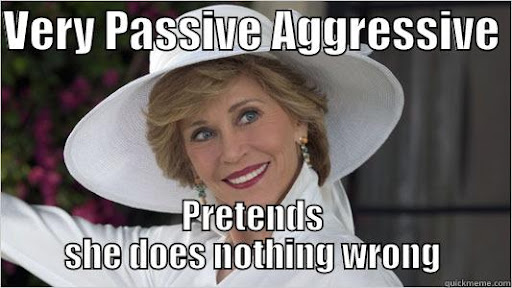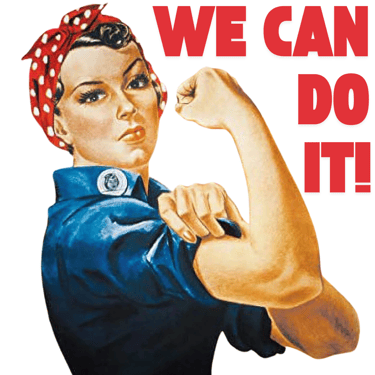Are You Raising Assholes? Let's Find Out. . .
Parents risk their kids' future by wanting to be friendly instead of stern with them.
12/9/20249 min read
This increasingly permissive culture allows the behaviors we tolerate in our children to significantly shape their identities and interactions with the world. While it's natural for children to express themselves, drawing a line between healthy expression and unacceptable misbehavior is crucial. Reflecting on my parenting practices, I am compelled to ask: Are you enabling your child’s potential disrespectfulness, unwittingly molding them into the very type of person you would prefer they not become?
Misbehavior often presents itself as cute or funny, especially at a young age. A spontaneous outburst at dinner or a defiant retort may elicit laughter rather than correction. It is easy to dismiss these moments as mere expressions of individuality, but I have come to realize that they are, in fact, telltale signs of deeper behavioral patterns. The fleeting amusement derived from these antics can cloud clarity about the importance of proper conduct. Such indulgence in unruly behavior fosters an environment where disrespect is normalized, and the repercussions of such tolerance become more apparent as children grow.
If you are unsure of what that entails, reflect on your parenting and ask yourself: are my kids scared of me? (not by your mere presence, but are they scared of disappointing you by not living up to your expectations) If not, you're doing it wrong. If they are insolent, especially from when they're little, you've got a growing problem on your hands. There's just no other way of putting it. Most of the time, problematic children either gravitate to crime, drug addiction or even satanic idolatry. In this World Wide Web era, all info about everything can be accessed by kids. The ones that seek out devil related lifestyles almost always end up mixed up with other lost innocents mimicking occultism for shock value. . .
One of the most critical aspects of parenting involves setting boundaries. When I observe a child interrupting adults, rolling their eyes, or using unsavory language, I throw eye-daggers at the parent, waiting for them to step in and be a parent to their child. if not, welp get ready to hear about it because some people won't tolerate such behavior. It's me, I'm "some people" and I know there's many like me out there.
Anyways, you're faced with two choices: correct the behavior or laugh it off as innocence. In moments of weakness, one may succumb to the allure of humor, thinking, “Oh, they’re just being funny!” The immediate gratification of laughter, however, can lead to long-term consequences. Normalizing these actions might suggest to your child that such behavior is acceptable and that respect for others is secondary to their whims.
Furthermore, the influence of peers cannot be overlooked. Children absorb social cues like sponges, often mirroring the attitudes and behaviors seen among their friends. If ypu allow your child to engage in disrespectful conduct, you place them at risk of being perceived as a troublemaker by their peers and educators. This could lead to isolation rather than inclusion, as children with poor social behaviors often struggle to form positive relationships. By working to correct these behaviors rather than condoning them, you empower your child to cultivate healthy social relationships marked by respect and kindness.
Remember, there are no scapegoats when raising kids. WE ARE DIRECTLY RESPONSIBLE FOR HOW THEY TURN OUT. WHAT WE IGNORE, WRITE-OFF, AND / OR NEGLECT MATTERS! Self-reflection is key in this process. you must evaluate your own responses to your child's antics. While one may prioritize their growth into respectful (and respectable) individuals, your responsibility as a parent extends beyond upholding rules; it encompasses instilling values that will serve your child long into adulthood. A child who feels free to express themselves while simultaneously understanding the power of respect will navigate life’s challenges with greater ease. It's just common sense.
When presented with the slightest glimpse of a bad influence, it's up to YOU to step in to discourage those kinds of associations. Giving rewarding incentives for keeping good grades is one thing, but to step up and be the "attitude adjuster" and teaching what isn't taught in classrooms is where your parenting is crucial. There is no other way. YOU ARE NOT THEIR FRIEND, YOU ARE THEIR GUARDIAN, BENEFACTOR AND DISCIPLINARY INSTRUCTOR! This is what it takes to be a parent. It's been proven that without these foundations your children WILL grow into inconsiderate, shallow, useless, and deplorable adults.
In conclusion, raising a child involves more than simply responding to their immediate needs or laughing off their playful disregard for authority. It requires a delicate balance of nurturing self-expression and demanding respect from others. If you take a moment to reflect on your parenting choices, you'd recognize the importance of addressing misbehavior head-on, ensuring that you're not inadvertently raising a little mother fucker. Instead, I aspire to guide my child toward becoming a compassionate, respectful individual, well-equipped to thrive in a complex and diverse society.
Dear You,
Let’s talk about your outstanding job as a parent—oh wait, you didn’t do one. Your utter failure to correct his bad behavior opened the floodgates to endless womanizing. Congratulations, you raised a man who doesn’t give a shit about the proper treatment of women. A grade-A, world-class Darryl and that’s all on you, dear mother-in-law. . .
She spent decades falling back on her looks, brown-nosing her husband and pretending that counted as a personality. My husband, unfortunately, watched all this and absorbed it like gospel. Now, he walks around with this warped, asinine view of what a woman should be — submissive, decorative, and permanently indebted to a man just for being around. Meanwhile, the truth is: she didn’t just play that role, she depended on it. Because she had nothing else to offer. Not academically, not financially, pfft not even physically - the woman wouldn't even pick up a bag of feathers. Duh.
So here we are — me, bearing the brunt of the mess she made, arguments with a man who behaves carelessly with me, and housing a woman who has no business breathing the same air as those of us who actually function in society. She spent her life parading around like royalty when she was really just dead weight in lipstick. And now, at the bitter end of her reign, we’re left to suffer through her incessant snobbery and misplaced arrogance.
Where her son is concerned? She's not just a bad influence — she still catastrophically enables him to continue on without an iota of corrective action. She's a walking, talking cautionary tale. A ginormous fuckup of a mother who somehow managed to raise a man while teaching him absolutely nothing. And somehow, even with all that failure, she still has the nerve to act like the rest of us are beneath her. Pffft times 10!
Let me be crystal clear about something: wanting unwavering and exceptional respect as you enter your elder years definitely depends on how you conducted yourself in your youth. And if you were a jackass, guess what? You seriously need to be on some "please & thank you" shit, because someone like me will definitely not coddle you. And NO, this isn't "elder abuse": no one hits her, and no one goes out of their way to insult her (a past time she loved to partake in - and still does!) I simply do not interact with her. Period. And she (and her son) are just going to have to accept it. They will have to find another sucker because I'm done playing along...
We all did not suddenly forget how she was in her prime — and spoiler alert: she was no saint. In fact, if karma really worked the way it’s advertised, she would’ve been reincarnated as a used ashtray by now. But nah. Instead, she’s still waking up every morning — under my roof — acting like she's some delicate, porcelain relic of grace, when she spent decades being an insufferable, smug, judgmental snob.
Let’s stop pretending old age wipes the slate clean. Her bones might be brittle, but that bitchy spirit? Still strong as ever. She walks (well, shuffles) around with this fragile little-lamb act like her entire legacy isn’t built on being a Grade-A, nose-in-the-air jackass. Newsflash: we remember. I remember. My husband remembers, and I can see it in his eyes when she’s talking—he’s embarrassed. He knows the jig is up. The family pedestal she built for herself crumbled the second her husband passed away. Now no one is left to keep polishing her bullshit. Poor guy, may he rest in peace.
And here’s what’s really sending me to the brink: she’s sitting on tens of thousands of dollars from her husband’s death. Tens. Of. Thousands. Meanwhile, she’s in my damn house chain-smoking like she’s training for an Olympic-level ash-flicking competition. She has the means to get her own place, to participate in society, hell, even to buy a car and go somewhere—anywhere—but she won’t. She just won’t. She wants to rot, slowly, in the center of my household like some kind of toxic shrine to her former self. She has other family, she has options, but no—she's here; because evidently, even she knows she cannot make it on her own. And that, dear readers, is how you end up fantasizing about murder.
So how do I avoid committing homicide? Seriously. I’m asking. Because I’m convinced there’s a special place in hell for women like her, but I’m not trying to join her early. Society is real quick to scream elder abuse without contemplating THE FACT that some of these older persons are quite comfy being disrespectful and hiding behind their age. That's not being a regular stubborn geezer, that's an antagonist at work.
My mother-in-law is the epitome of audacious. We’re talking about a woman who waltzes through life with her nose in the air, acting like she invented class — yet she can barely read, can't string together a full sentence without butchering it, and thinks "correspondence" is some kind of dessert. The only reason she ever floated through life with even a shred of dignity is because her husband was by her side, bless his poor, patient, now-dead soul. As unfortunate as his passing was, I am now viewing it as sheer luck! Only in death could that man find the peace of NOT HAVING TO COVER UP SOMEONE ELSE'S INCOMPETANCE ON A DAILY BASIS.
Welp, as luck has it, she's been living with my husband and I for a few years now — and despite all odds and everyone's silent prayers, she keeps waking up every damn morning. Day after day. Like some karmic punishment I didn’t sign up for. And trust me, her presence isn’t just annoying — it’s an intellectual black hole. She can’t drive, can hardly work a cellphone, mis-spells almost everything, can't write in cursive and her handwriting looks like a chicken had a seizure on the page. We’re not talking about someone aging gracefully here — we’re dealing with a relic that never evolved, never learned, never even tried. Things were given to her. Every. Fucking. Thing.


I am at a breaking point. I’ve been forced to live with a situation I never agreed to, never signed up for, and frankly, never would have tolerated if I’d known what it would turn into. Having my mother-in-law live with us full-time has become a constant source of stress, anxiety, and emotional turmoil. She didn’t just move into the house — she moved into my space, my life, and slowly drained the peace from it. And yet, despite all of this, my husband — the one person who should be standing by me — refuses to even see how this has affected me.
This wasn’t a mutual decision. It was a unilateral imposition. I feel like my needs, my boundaries, and my well-being have all been shoved aside to accommodate someone who not only adds nothing positive to my life, but actively chips away at my peace of mind. My health has suffered — I didn’t have high blood pressure before she moved in. Now, I can barely relax in my own home. Every day feels like I’m walking on eggshells.
What makes this even harder to stomach is the sheer hypocrisy. This is the same man who flat-out refused to even meet my mother because he was “uncomfortable.” Yet I’m expected to not only live with his mother, but also manage her moods, tolerate her behavior, and essentially erase myself for the sake of “keeping the peace”? No. That peace comes at too high a price — my own sanity.
So I’ve stopped pretending. I no longer force interactions, no longer play nice when it’s destroying me inside. July 4th marked a turning point. I refuse to be silent, complicit, or invisible anymore. My health, my sanity, my life matter. It’s high time I prioritized myself — because, let's be honest, no one in my house gives a crap about my health and happiness.


After being forced to stomach her, I can no longer watch films like this without getting pissed off. King of Queens and Everybody Loves Raymond? Those too are not at all funny after having lived it!
*If you need to vent there are outlets like Supportiv.com where you can blow off some steam, if your spouse shuts you down and there's no one else to talk to.
Get In Touch:
adm@boujeeburke.com
grievances: hbic@boujeeburke.com
Full disclosure: Some of the links on this site are affiliate links, which means if you click through and make a purchase, I earn a teeny-tiny commission (at no extra cost to you). It helps keep the lights on and the coffee flowing while I bring you legit promotions and handpicked gems—because nobody likes shady deals, least of all me. Disclosure: This site is part of a network of independently operated niche websites under the same ownership. Affiliate or monetized content is disclosed where applicable. Please feel free to reach out for inquiries, feedback, or partnership opportunities. Boujee Burke is open to suggestions, & mutually beneficial partnerships.








